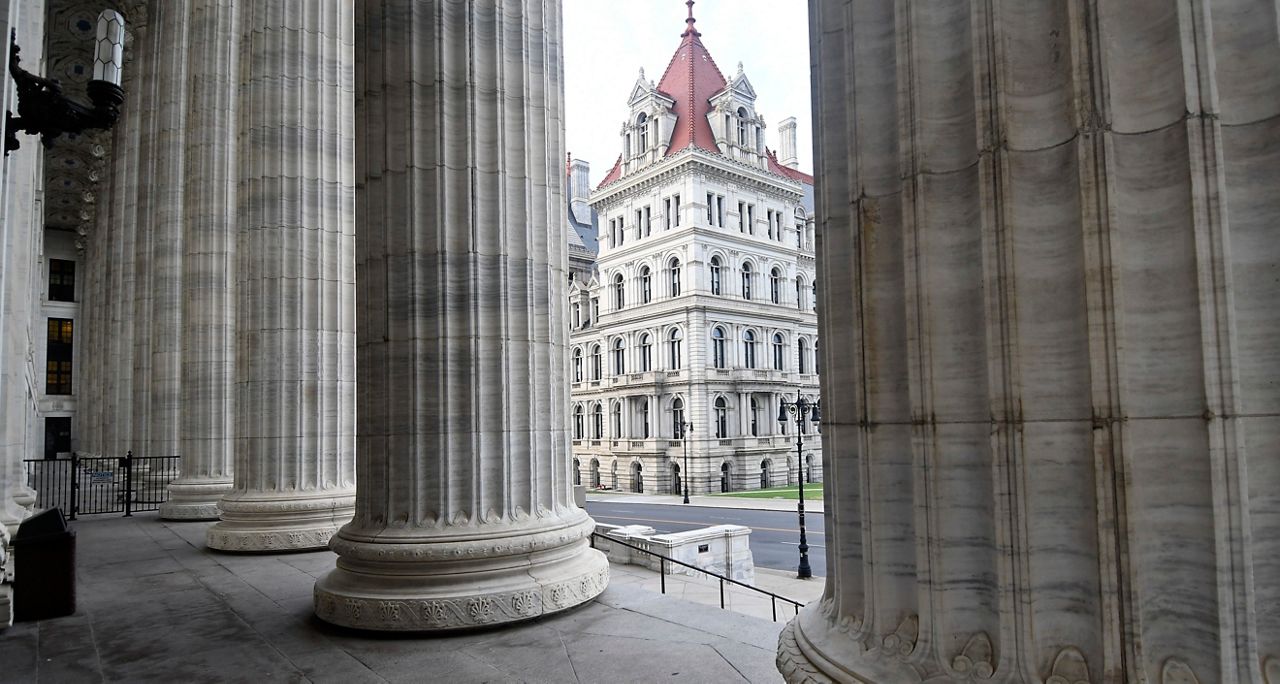Governor Andrew Cuomo has acknowledged the various paths New York's state budget can take are not pretty if no federal aid comes through from Washington.
New York is seeking billions of dollars in aid from federal officials to offset the revenue that vanished amid the shutdown due to the coronavirus pandemic.
And the crisis has blown a gap in the state budget that could require some difficult choices in the coming months for state officials after relatively flush times.
There are calls for tax increases on the rich amid worries the state's wealthiest are fleeing the state, potentially tapping dry a well of revenue. Spending reductions, however, are not politically popular and can spark a backlash.
Here are three options New York faces in the coming weeks.
1. Democratic Yahtzee After Election Day
Democrats win the presidency and the U.S. Senate while padding their majority in the House of Representatives. The new Congress and the Biden administration in early 2021 approved a massive trillion-dollar bailout package that provides direct aid to state and local governments who were hit hard by the COVID-19 pandemic.
This is potentially the best-case scenario for the governor and the state Legislature, avoidng a protracted budget fight, even if some local governments and school districts sweat out the details of the aid package in the early weeks of the new year.
2. The Kitchen Sink
C'mon, nothing can be that easy. Election Day is unlikely to settle anything in Washington in the short term. The counting of absentee ballots across the country could leave the question over who controls what in the federal government an open question for weeks to come.
If Republicans retain the U.S. Senate or the presidency or appear poised to do so, Democrats in Albany might move forward with plans of their own. That could include a special session in the late part of this year to take up a menu of "revenue raisers" — tax increases, fee hikes and measures designed to bring the state more money. Think mobile sports betting, legalized commercial cannabis, a variety of taxes on richer people. A big borrowing plan for New York City is also considered, and some other local governments try to jump onto the train, much to Cuomo's chagrin.
Will that special session get the state to the billiions of dollars it needs to begin closing its budget gap? Almost certainly no.
A reduction in spending would still be necessary for local governments and school districts, forcing difficult choices for the Democratic majorities in the state Senate and Assembly as well as Cuomo. This is what the governor has called the worst case scenario if federal aid doesn't come through for states.
3. More Uncertainty
Let's face it: It's impossible to predict anything. What if Democrats score big this year, but still can't come up with a stimulus plan? What if Republicans and Democrats, in surprisingly bipartisan bonhomie in Washington, approve a slightly smaller stimulus package than what Cuomo wants from the federal government? Could tax increases still be a possibility even with federal aid given the multi-year nature of the budget problem? Local governments and school districts will continue to adjust to their aid being potentially withheld. The uncertainty scenario is potentially the most likely one.



